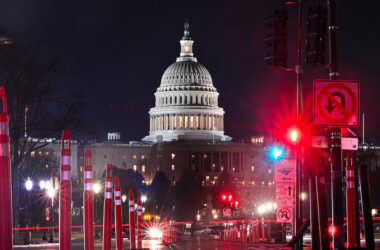The debate over Syrian migrants in Germany is heating up, with Christian Democrat Union (CDU) candidate for chancellor, Friedrich Merz, calling for tough action.
Merz has pointed to the high unemployment rate among Syrians in Germany, saying that the country can no longer absorb any more refugees from Syria and that those who haven’t integrated should go back. “One-third of Syrians work and are integrated, but two-thirds do not,” he said. “Many of them can go back. We need to be blunt—there’s no long-term place for them in Germany.”
Currently, around 1 million Syrians live in Germany, with a significant portion not working, putting a strain on taxpayers. Only 210,000 Syrians are employed, while over 400,000 are either unemployed or actively seeking work. Merz argues it’s time to start pushing for their return, especially now that Bashar al-Assad’s regime has stabilized in parts of Syria.
Merz further emphasized that the country shouldn’t take in any more Syrians, citing concerns that some refugees might have been part of Assad’s militias. His comments echo those of the CDU under former Chancellor Angela Merkel, who made the controversial decision to welcome a large number of Syrian refugees. However, the backlash against this move is growing, as many of the refugees have shown little interest in returning home.
The CDU and its sister party, the Christian Social Union (CSU), are pushing for the rapid deportation of criminal migrants, with CSU leader Alexander Dobrindt calling for the return of those whose protection status has expired. But while the CDU seeks to deport, the Green Party, along with the Social Democrats (SPD), are staunchly against any form of forced return. Lamya Kaddor, a Green Party spokeswoman, even accused the CDU of using migration policy for political gain, dismissing their deportation plan as unrealistic.
Meanwhile, SPD leader Dirk Wiese criticized the CDU’s stance as “un-Christian,” arguing that it was cynical to talk about deportations in light of the ongoing conflict in Syria.
The situation reflects a growing divide in Germany’s politics over the impact of mass migration, with many questioning the long-term sustainability of such policies. The call for return and limits on further migration is growing louder as the country grapples with the costs and challenges of integrating large numbers of refugees.




